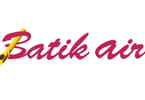BAKU, Azerbaijan – The International Air Transport Association (IATA) urged Azerbaijan to adopt an agenda for enhanced safety and regulation to enable aviation to expand its role as a catalyst for economic growth and development in the country.
“Aviation supports 1.8% of Azerbaijan’s GDP and provides employment for 1.5% of the work force. This is a significant impact, but when compared to aviation’s contribution to places such as Singapore or the United Arab Emirates, where aviation accounts for 9% and 15% of GDP respectively, it demonstrates that Azerbaijan has untapped potential,” said Tony Tyler, IATA’s Director General and CEO.
Speaking at an event marking the 75th anniversary of commercial aviation in Azerbaijan, Tyler noted that “aviation supports some AZN 395 million of business and more than 66,000 jobs including aviation-related tourism.” However, some important issues must be addressed if Azerbaijan is to reap the full benefits of its aviation sector.
Safety
Safety is the industry’s top priority. The 900+ standards laid down by the IATA Operational Safety Audit (IOSA) have played a major role in improving safety. IOSA registered carriers had a rate for all accidents 77% better than non-IOSA carriers last year. In 2009 a cooperation agreement between IATA and the Interstate Aviation Committee of the Commonwealth of Independent States (CIS) sought to embed IOSA principles in regulatory safety oversight.
“Azerbaijan could go beyond the cooperation agreement and make IOSA registration a formal requirement. Azerbaijan Airlines (AZAL) has been on the IOSA registry since 2008 but the safety reputation of Azerbaijani aviation would be enhanced by all the nation’s carriers qualifying for IOSA registration,” said Tyler.
Tyler also urged the government to consider requiring ground handlers to be compliant with the IATA Safety Audit for Ground Operations (ISAGO) which is the global standard for safe ground operations, helping to address the billions of dollars of ground damage that the industry incurs each year.
Regulation
Tyler set out two priorities for aviation regulation in Azerbaijan.
· An immediate need for Azerbaijan to ratify the Montreal Convention 1999. The Convention sets common standards on liability and is the basis for the recognition of electronic documentation for freight shipments. “I have asked the government to move forward with ratification of the Convention and alignment of related laws. Russia and Kazakhstan—two of Azerbaijan’s most important trading partners—will have the Convention in place by the end of 2013. I hope that Azerbaijan will be able to keep pace,” said Tyler.
· In line with global standards, it is important that the Civil Aviation Authority has an arms-length relationship with AZAL. The government has a work stream in place to delineate clearly the functions of the CAA. IATA can assist with capacity building to help the CAA grow its responsibilities.
Tyler noted that the government of Azerbaijan is focusing on the successful development of aviation. This is notable particularly in its impressive airport infrastructure. Over the last decade both Baku and Nakhchivan airports have been completely re-developed and modernized. In addition the new airports in Ganja, Zakatala, Lankaran and Gabala have been opened to provide air connectivity across the country.
“The Azerbaijani government is to be commended for its approach to developing infrastructure in consultation and cooperation with airlines. Looking to the future, I would encourage a continuing partnership between the government, the airport, the operator and the airlines that will use the facilities. We would also like to see a similar approach adopted by Azerbaijan air navigation services” said Tyler.
Finally Tyler reiterated IATA’s support for Azerbaijan as a committed partner in helping to grow the benefits of air connectivity through the safe, secure and sustainable development of aviation.
“There is tremendous potential for aviation to play a much bigger role in the development of Azerbaijan—and indeed across the whole of the CIS. The industry has only just begun to connect this culturally rich and economically important region internally and with the rest of the world. Connectivity provided by aviation will be a critical enabler of future growth, development and prosperity,” said Tyler.
WHAT TO TAKE AWAY FROM THIS ARTICLE:
- Tyler also urged the government to consider requiring ground handlers to be compliant with the IATA Safety Audit for Ground Operations (ISAGO) which is the global standard for safe ground operations, helping to address the billions of dollars of ground damage that the industry incurs each year.
- BAKU, Azerbaijan – The International Air Transport Association (IATA) urged Azerbaijan to adopt an agenda for enhanced safety and regulation to enable aviation to expand its role as a catalyst for economic growth and development in the country.
- This is a significant impact, but when compared to aviation's contribution to places such as Singapore or the United Arab Emirates, where aviation accounts for 9% and 15% of GDP respectively, it demonstrates that Azerbaijan has untapped potential,” said Tony Tyler, IATA's Director General and CEO.






















